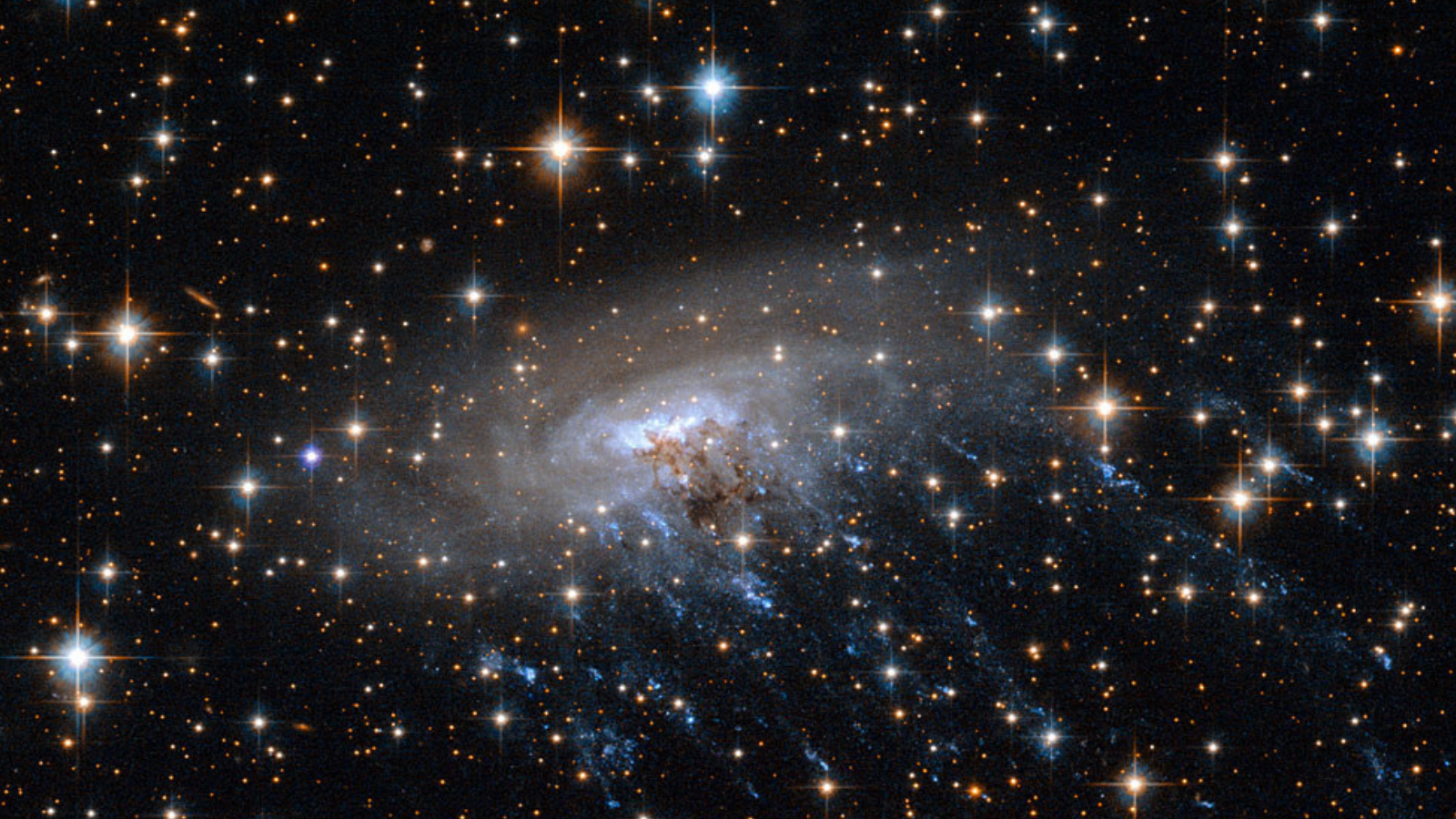Elon Musk says SpaceX will keep paying for Starlink satellite internet service in Ukraine
"To hell with it," Musk said on Twitter adding that SpaceX will keep funding Ukraine's Starlink after all.

Breaking space news, the latest updates on rocket launches, skywatching events and more!
You are now subscribed
Your newsletter sign-up was successful
Want to add more newsletters?

Delivered daily
Daily Newsletter
Breaking space news, the latest updates on rocket launches, skywatching events and more!

Once a month
Watch This Space
Sign up to our monthly entertainment newsletter to keep up with all our coverage of the latest sci-fi and space movies, tv shows, games and books.

Once a week
Night Sky This Week
Discover this week's must-see night sky events, moon phases, and stunning astrophotos. Sign up for our skywatching newsletter and explore the universe with us!

Twice a month
Strange New Words
Space.com's Sci-Fi Reader's Club. Read a sci-fi short story every month and join a virtual community of fellow science fiction fans!
Elon Musk said SpaceX will continue funding its Starlink internet service in Ukraine on Saturday (Oct. 15), backtracking from the company's push to ask the Pentagon to foot the bill.
The SpaceX CEO and billionaire wrote on Twitter that his spaceflight company will continue to provide Starlink internet service at no cost to Ukraine, which is currently fighting off a Russian invasion, after saying earlier this month that the effort has cost SpaceX $80 million to date.
"To hell with it ... even though Starlink is still losing money & other companies are getting billions of taxpayer $, we'll just keep funding Ukraine govt for free," Musk wrote on Twitter Saturday.
Related: Elon Musk says SpaceX won't keep funding Starlink in Ukraine, asks Pentagon to take over
The hell with it … even though Starlink is still losing money & other companies are getting billions of taxpayer $, we’ll just keep funding Ukraine govt for freeOctober 15, 2022
Musk's statement comes after a report from CNN on a SpaceX letter asking the U.S. military to begin covering costs for Starlink service in Ukraine. CNN reported that SpaceX wrote the Pentagon in September to say the company could no longer cover Starlink service in Ukraine for free, adding that it would cost the company to $120 million for the rest of 2022 and an estimated $400 million for the next 12 months.
"We are not in a position to further donate terminals to Ukraine, or fund the existing terminals for an indefinite period of time," the letter stated.
Elon Musk and SpaceX began sending Starlink terminals that allow access to the company's satellite internet service to Ukraine in late February shortly after Russian troops invaded and a public call for aid from Ukrainian officials.
Breaking space news, the latest updates on rocket launches, skywatching events and more!
SpaceX President Gwynne Shotwell said at the time that the company had been working on the project for weeks before Mykhailo Fedorov, Ukraine's vice prime minister and the country's minister of digital transformation, put out the call for help via Twitter on Feb. 26. By Feb. 28, the first Starlink terminals were on the ground in Ukraine.
By early April, SpaceX and USAID announced a public-private partnership that had delivered 5,000 Starlink terminals to Ukraine, with over 3,000 of them provided directly by SpaceX. To date, SpaceX has set about 20,000 terminals to Ukraine, according to the New York Times.
SpaceX's Starlink internet service is a space-based broadband network that aims provide global access to high-speed internets using a vast constellation of satellites in orbit. To do that, SpaceX has been launching satellites at a prolific rate, with dozens of satellites placed into orbit at a time during near-weekly launches. The service costs $110 per month, with an initial one-time hardware cost of $599.
SpaceX's most recent Starlink launch was on Oct. 5, when the company placed another 52 Starlink satellites into orbit. SpaceX has launched more than 3,400 Starlink satellites so far as it works to build a constellation 12,000 satellites strong. The company has also applied for permission to launch another 30,000 satellites beyond that to boost its internet network.
Email Tariq Malik at tmalik@space.com or follow him @tariqjmalik. Follow us @Spacedotcom, Facebook and Instagram.

Tariq is the award-winning Editor-in-Chief of Space.com and joined the team in 2001. He covers human spaceflight, as well as skywatching and entertainment. He became Space.com's Editor-in-Chief in 2019. Before joining Space.com, Tariq was a staff reporter for The Los Angeles Times covering education and city beats in La Habra, Fullerton and Huntington Beach. He's a recipient of the 2022 Harry Kolcum Award for excellence in space reporting and the 2025 Space Pioneer Award from the National Space Society. He is an Eagle Scout and Space Camp alum with journalism degrees from the USC and NYU. You can find Tariq at Space.com and as the co-host to the This Week In Space podcast on the TWiT network. To see his latest project, you can follow Tariq on Twitter @tariqjmalik.
